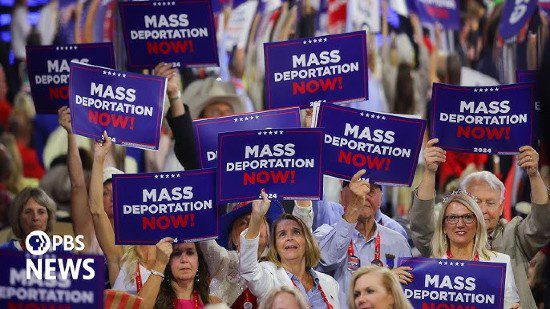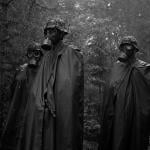Many years ago, I remember watching the Winter Olympics on TV with my dad. When Kristi Yamaguchi won the gold in figure skating, one of the commentators remarked that she was an American winner who “didn’t look like an American.”
“Yes she does!” my dad yelled back at the TV, “Yes she does!” He was furious and disgusted. The idea that anyone did or did not “look like an American” was something that, in 1992, he found enraging and offensive.

My father, who died about a decade ago, was a conservative Republican and a conservative white evangelical Christian. His expansive, inclusive idea of what an “American” looks like was not a departure from either of those allegiances. This was something that, in 1992, conservative Republicans and conservative white evangelicals were still allowed to believe.
More than that, I think Dad’s evangelical faith was a source of his borderless inclusiveness. He served on the Mission Committee at our church, which raised funds and distributed them to the dozens of missionaries all over the world our church chose to sponsor and support. That committee also organized our annual Missions Conference, which began each year with young people from our church parading through the sanctuary carrying the flags of every nation our missionaries served. “World Missions” was an integral part of that church’s identity and the faith taught, learned, and lived there.
I can’t say that this World Missions focus was perfect or that it was not, in many ways, deeply flawed. It was often expressed in ways that were paternalistic or colonialist or downright exploitative. But it was not only that. At its core was a lovely insistence that, as we sang in Sunday school:
Jesus loves the little children
All the children of the world
Red and yellow, black and white
They are precious in his sight
Jesus loves the little children of the world.
Again, this didn’t mean that our all-white congregation* wasn’t very often racist in subtle and not-subtle ways. Plenty of folks at that church would have agreed with the segregationist gospel of L. Nelson Bell — Billy Graham’s father-in-law — whose years of missionary work in China did not in any way challenge his belief that those people belonged over there and not over here, and who believed in sending missionaries to Africa even while clinging to starkly white supremacist folklore and flagrantly racist curse-of-Ham nonsense. This was, after all, a white fundamentalist church — one committed to and based on the hermeneutic designed by and for slave-owners.
And so, yes, there were always layers of cognitive dissonance, ironies and contradictions, but a part of that untenable mixture was an insistent core belief in the humanity of “all the children of the world.” These were God’s children — people created by God and redeemed by God. Jesus died for them too.
And that belief was part of what had my father shouting back at the television, angry at the suggestion that a third-generation Japanese-American athlete did not “look like” an American.
This also came from my dad’s Reagan-era Republicanism, which was for him and for most of our church impossible to distinguish from the rest of his faith. That politics was a toxic mess that leaves behind a trail of bodies and still kills today. But its rhetoric, and to some extent its actions, on immigrants and immigration was vastly different from what is said or allowed to be said by Republicans here in the 21st Century. Reagan’s final public speech as president, from January of 1989, focused on immigration as the wellspring of American leadership, vitality, and prosperity. If any Republican today dared to speak these words they would be condemned as a “woke” subversive in an ALL CAPS rant from the White House and a primary challenge would be announced the next day:
This, I believe, is one of the most important sources of America’s greatness. We lead the world because, unique among nations, we draw our people — our strength — from every country and every corner of the world. And by doing so we continuously renew and enrich our nation.
While other countries cling to the stale past, here in America we breathe life into dreams. We create the future, and the world follows us into tomorrow. Thanks to each wave of new arrivals to this land of opportunity, we’re a nation forever young, forever bursting with energy and new ideas, and always on the cutting edge, always leading the world to the next frontier. This quality is vital to our future as a nation. If we ever closed the door to new Americans, our leadership in the world would soon be lost.
I’m not quoting that to praise Ronald Reagan or to defend his record on immigration. My point here is that this politics, like the “World Missions” faith of our church, shaped who my dad was and what he believed back in 1992. This is what made him so angry at the suggestion that Kristi Yamaguchi did not “look like an American” — at the suggestion that there might be anyone who did not look like an American.
That form of white evangelical faith and that form of Republican politics is now, like my father, dead and gone. White evangelicalism has been captured by the Republican Party and vice versa, but neither variant of the merged product encourages or permits what Dad once believed about what it means to “look American,” or about who is and is not “precious” in the sight of Jesus. Both the religion and the party now insist on the opposite of that last sentence from Reagan’s final speech, warning that “If we do not close the door to new Americans, our world will soon be lost.”
* Except for Darren and his grandmother.













